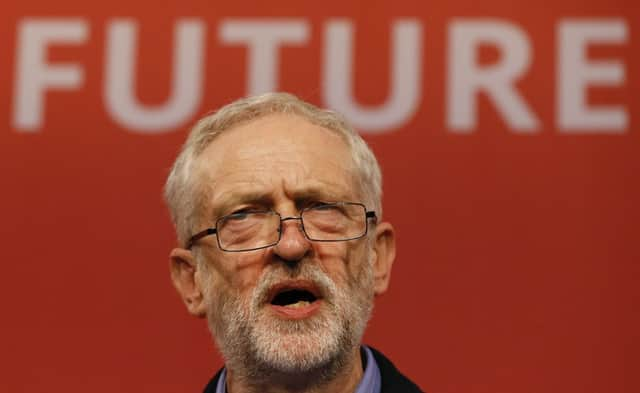Leaders: Corbyn’s mandate comes with limitations


Now there is the process of choosing his shadow cabinet. His supporters, the party overall and the wider public will then have a clearer idea, not only of the direction of travel but also of the character and composition of the leadership team.
For the moment, it may appear that he has been given an unqualified mandate as he sets his stamp on the official opposition. But overwhelming though his victory has been, the limitations of that mandate are already evident.
Advertisement
Hide AdAdvertisement
Hide AdAn early priority is to unite the party – but there is little clarity as to how this is going to be achieved. Beneath the immediate euphoria of Mr Corbyn’s triumph, opinion within the party is clearly divided – between his hard-Left supporters relishing the prospect of being in charge after decades of confinement to the margins of power, and those, less demonstrative, who fear that the triumph of Mr Corbyn and his policies could deny the Labour Party any serious prospect of power. Already eight shadow cabinet members have made clear they will not serve under a Corbyn leadership. Labour MPs are divided as to whether to stage an early revolt or allow some time to elapse. Already there is talk of a constituency “purge” of Corbyn-doubting MPs. All this underlines the gulf that exists between his election and the prime aim of Labour, which is to be a party of government. So far, there appears little hope for unity. And time is short. Major policy challenges lie immediately ahead. Will Mr Corbyn continue with his opposition to membership of Nato and the previous leadership’s commitment to Trident? What is to be the party’s stance on the forthcoming EU referendum? How will Corbyn-led Labour prepare and present a credible economic alternative to the government’s commitment to debt and deficit reduction? Each one of these presents a challenge, not only to those early exhortations for unity, but to the credibility and authority of the new Labour leader. Were Mr Corbyn to fail in taking the parliamentary party with him, not only would Labour’s electoral prospects be undermined, but his leadership may also come to be short-lived.
Thus, resounding though his victory may seem, it is unlikely to prove a carte blanche for the new leader. Even this resounding mandate has limits.
Unity needed, not a ‘neverendum’
It is barely a year since Scotland voted emphatically to reject independence. But despite assurances of this being a “once-in-a-generation” vote, the SNP is preparing to keep all options open for a second referendum much earlier than expected.
First Minister Nicola Sturgeon has indicated that the party will set out the timescale for a possible second independence referendum in its manifesto for next year’s Scottish Parliament election. Her response thus far has been that “it would be up to the people of Scotland to decide” when another referendum would be held – which barely clarifies matters. Yesterday Stewart Hosie, the party’s finance spokesman at Westminster, added to the confusion by saying that if the Smith powers failed to deliver, then this could trigger a second vote.
The party feels emboldened to take this step as support has risen since the result, reducing Labour’s Scottish representation at Westminster to just one seat. Thus, for Yes campaign enthusiasts, there is good reason to offer the prospect of a second referendum while the SNP continues to sweep all before it. But for others, it smacks of a “neverendum” and an unwelcome return to the deep divisions and bitterness that marked the run-up to last year’s vote. Such a prospect would also divert attention from Holyrood’s domestic agenda, where major issues, from education policy to the governance of Police Scotland, are pressing for attention.
Never-ending speculation about a referendum will only maintain division and uncertainty when we need unity and resolve.